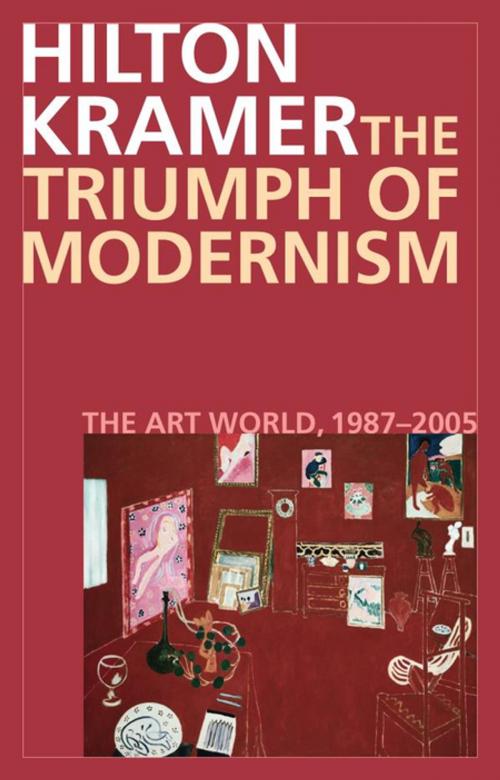The Triumph of Modernism
The Art World, 1987–2005
Nonfiction, Art & Architecture, General Art, Criticism| Author: | Hilton Kramer | ISBN: | 9781442223226 |
| Publisher: | Rowman & Littlefield Publishers | Publication: | December 9, 2013 |
| Imprint: | Rowman & Littlefield Publishers | Language: | English |
| Author: | Hilton Kramer |
| ISBN: | 9781442223226 |
| Publisher: | Rowman & Littlefield Publishers |
| Publication: | December 9, 2013 |
| Imprint: | Rowman & Littlefield Publishers |
| Language: | English |
Widely acknowledged as the most authoritative art critic of his generation, Hilton Kramer advanced his comments and judgments largely in the form of essays and short pieces. Thus this first collection of his work to appear in twenty years is a signal event for the art world and for criticism generally.
The Triumph of Modernism not only traces the vicissitudes of the art scene but diagnoses the state of modernism and its vital legacy in the postmodern world. Mr. Kramer bracingly updates his incisive critique of the artists, critics, institutions, and movements that have formed the basis for modern art. Appearing for the first time in greatly expanded form is his consideration of the foundations of modern abstract painting and the future of abstraction.
The aesthetic intelligence that Mr. Kramer brings to bear on certain tired assumptions about modernism—many of them derived from methodologies and politics that have little to do with art—helps rescue the artwork itself and its appreciation from the very institutions, such as the art museum and the academy, that purport to foster it.
Always clear-eyed and vastly illuminating, Hilton Kramer’s art criticism remains among the very finest written in the past hundred years. Readers of The Triumph of Modernism will be treated to an exhilarating experience.
Widely acknowledged as the most authoritative art critic of his generation, Hilton Kramer advanced his comments and judgments largely in the form of essays and short pieces. Thus this first collection of his work to appear in twenty years is a signal event for the art world and for criticism generally.
The Triumph of Modernism not only traces the vicissitudes of the art scene but diagnoses the state of modernism and its vital legacy in the postmodern world. Mr. Kramer bracingly updates his incisive critique of the artists, critics, institutions, and movements that have formed the basis for modern art. Appearing for the first time in greatly expanded form is his consideration of the foundations of modern abstract painting and the future of abstraction.
The aesthetic intelligence that Mr. Kramer brings to bear on certain tired assumptions about modernism—many of them derived from methodologies and politics that have little to do with art—helps rescue the artwork itself and its appreciation from the very institutions, such as the art museum and the academy, that purport to foster it.
Always clear-eyed and vastly illuminating, Hilton Kramer’s art criticism remains among the very finest written in the past hundred years. Readers of The Triumph of Modernism will be treated to an exhilarating experience.















